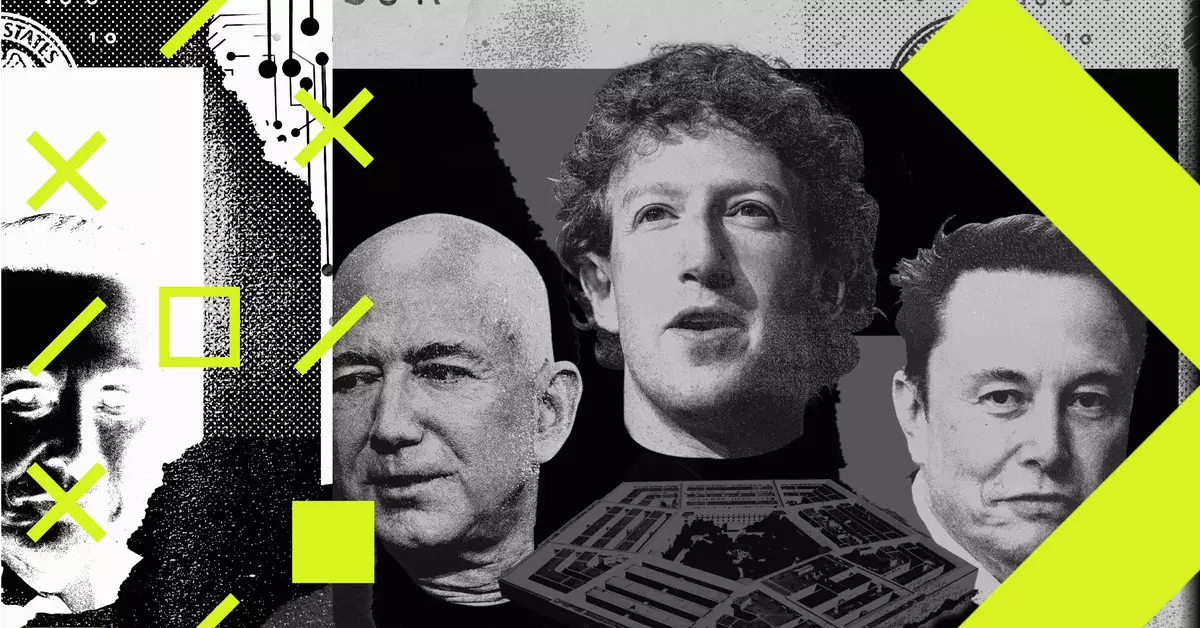The evolving interplay between technology, social media giants, and state power has entered a new, tumultuous chapter. With the advent of the second Trump administration, tech companies like Meta and TikTok find themselves at the heart of contentious debates over speech regulation, governance, and geopolitical dynamics. Recent weeks have highlighted how these platforms are not only coping with internal policy changes but are also being swept up in broader political currents that could redefine digital communication as we know it.
In a notable shift, Meta has changed its content moderation rules, allowing a wider range of slurs and hate speech on its platforms. This pivot poses questions about the ethical responsibilities of tech giants in regulating speech and reflects a larger trend where the lines between free expression and harmful rhetoric blur. Mark Zuckerberg’s announcement to abandon fact-checking in favor of crowdsourced community notes raises alarming concerns about misinformation and online discourse, further opening the floodgates for potentially harmful content.
Zuckerberg’s decision can be interpreted as an alignment with a specific political narrative that emphasizes freedom at the expense of accountability—a choice echoing the previous administration’s combative stance towards regulatory oversight. As the idea of “free speech” is wielded as a political tool, the implications for everyday users become increasingly murky. What does it mean for a platform that has democratically chosen to amplify controversial voices? The ramifications will likely redefine the fabric of online communication and community engagement.
The intricate relationship between these tech companies and government entities raises significant geopolitical questions, particularly in light of the EU’s Digital Services Act. This legislation aims to impose stringent regulations on social media platforms, spotlighting the growing power struggle between state intervention and corporate authority. This tangle of politics suggests a unique form of “gangster tech regulation,” where the outcomes are prioritized over fairness, possibly ushering in an era where governmental influence is cultivated through economic necessity rather than lawful adherence.
The suggestion that Trump might advocate for American ownership of TikTok’s distribution model adds another layer to this complex narrative. It positions digital platforms as battlegrounds for competing interests, navigating not only local regulations but also global tensions. The prospect of a partial U.S. government ownership raises vital concerns about First Amendment rights and the direction of media ownership in a heavily politicized climate. How does a nation reconcile its ideals of free expression with the reality of economic and political leverage? This dichotomy presents challenges that demand serious scrutiny.
As tech leaders engage with government officials, discussions and decisions seem driven more by political expediency than ethical guidelines. Zuckerberg’s apparent courting of Trump highlights a willingness to engage in what can only be termed transactional power dynamics, trading certain values for the promise of favorable treatment. Such dealings raise ethical concerns regarding corporate responsibility and governmental oversight, blurring the lines of accountability for both entities involved.
This evolving narrative is characterized by a troubling trend: power is increasingly concentrated in the hands of a few individuals while large tech companies navigate their responsibilities as de facto moderators of public discourse. The consequences for average users who rely on these platforms for communication become clearer as the stakes are raised in this geopolitical chess game. Users suddenly find themselves caught in a crossfire of agendas, where their personal freedoms and online experiences may be overshadowed by wider political strategies.
The Future of Online Communication: An Uncertain Terrain
The chaotic intersection of tech giants and state power brings forth questions that reach into the core of democratic values. As trends toward deregulation create a more permissive environment for hate speech and disinformation, a potential fracture may emerge in public trust. What used to be considered simply a technological shift now takes on broader sociopolitical significance, urging technologists, legislators, and the public to re-evaluate what they expect from the platforms they utilize daily.
In the face of this tumultuous landscape, the future of online communication is fraught with uncertainty as the potential for authoritarian practices grows. Navigating this terrain requires vigilance from users, policymakers, and advocates alike, but it also demands a rethinking of how we perceive power in the digital age. The convergence of tech and state has the capacity to reshape not only the future of communications but the ideals of free expression and democracy itself, prompting a critical re-examination of what it truly means to engage in a global digital society.

